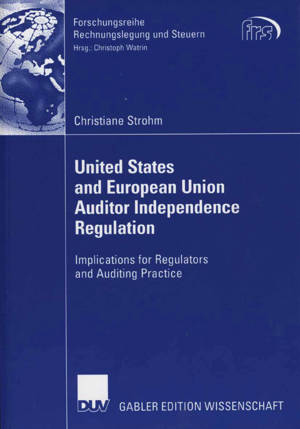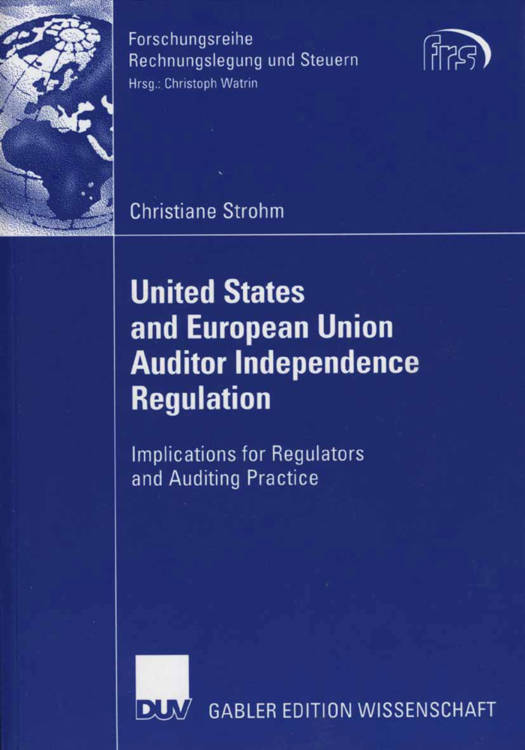
- Afhalen na 1 uur in een winkel met voorraad
- Gratis thuislevering in België vanaf € 30
- Ruim aanbod met 7 miljoen producten
- Afhalen na 1 uur in een winkel met voorraad
- Gratis thuislevering in België vanaf € 30
- Ruim aanbod met 7 miljoen producten
Zoeken
United States and European Union Auditor Independence Regulation
Implications for Regulators and Auditing Practice
Christiane Strohm
€ 85,79
+ 171 punten
Omschrijving
In recent years, the Sarbanes-Oxley-Act has received intemational attention unlike few other laws. The rules presented in this act take influence on business practice and dominate the ongoing discussion on business constitution in the USA as well as in Europe. Christiane Strohm's dissertation investigates the effects of the Sarbanes- Oxley-Act and the revised 8 EU-Directive - as a response toward the US-law - on auditing. This study is innovative for several reasons. Combining an auditor independence risk model (Mock et. al. 2005) with considerations on task complexity (Bonner 1994, 1995), the author develops an experimental approach that can be put to future use in research on regulation. In the following, the American and European regulations are investigated in three separate experiments that are conducted with participants of international background. With this, the author provides - to my knowledge - the first empirical comparative analysis of the Sarbanes Oxley Act and the revised 8 EU- Directive. As both statutes provide representative examples for rules-based (Sarbanes-Oxley-Act) and for principles-oriented (8 EU-directive) regulation, this work deserves recognition from beyond the limited scientific community of those interested in auditing. The experimental design and the results generated by this study are of high significance for the general discussion on the advantages of either rules-based or principles-oriented regulation that characterizes the current controversial debate on corporate governance.
Specificaties
Betrokkenen
- Auteur(s):
- Uitgeverij:
Inhoud
- Aantal bladzijden:
- 235
- Taal:
- Engels
- Reeks:
Eigenschappen
- Productcode (EAN):
- 9783835002876
- Verschijningsdatum:
- 27/03/2006
- Uitvoering:
- Paperback
- Formaat:
- Trade paperback (VS)
- Afmetingen:
- 148 mm x 210 mm
- Gewicht:
- 340 g

Alleen bij Standaard Boekhandel
+ 171 punten op je klantenkaart van Standaard Boekhandel
Beoordelingen
We publiceren alleen reviews die voldoen aan de voorwaarden voor reviews. Bekijk onze voorwaarden voor reviews.








